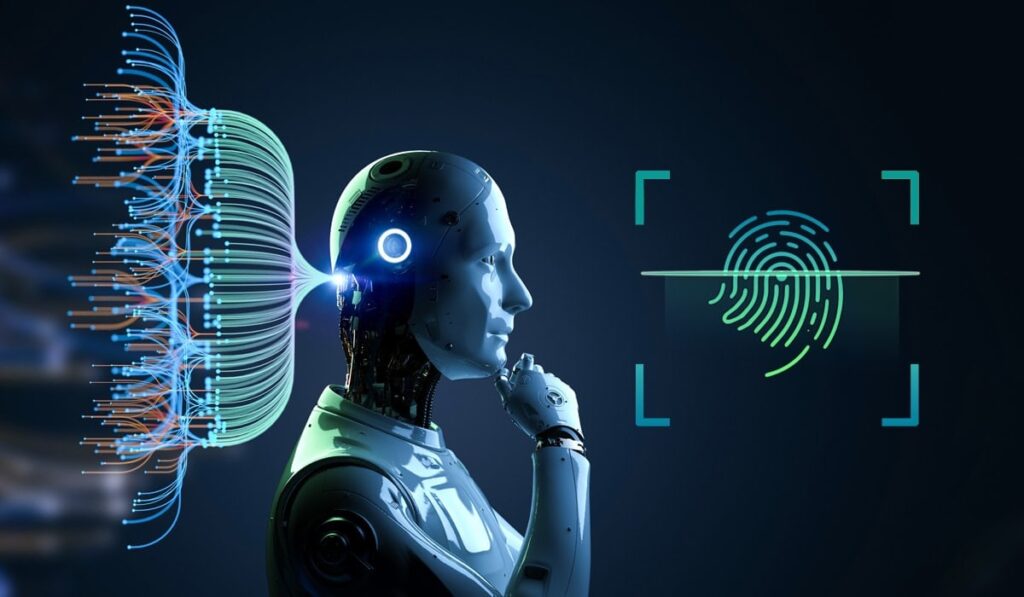Introduction
As artificial intelligence (AI) becomes a major determinant of innovation in numerous sectors, it is rapidly altering our lives, jobs, and interactions. From virtual assistants to autonomous cars, AI has become ever more important as a topic as it fits so well into our daily existence. But why should a tech enthusiast, corporate leader, or student be worried about AI? Its broad spectrum of possible consequences on technology and society presents opportunities for development, efficiency, and fresh initiatives based on chance. This article covers the history, applications, and potential future directions of AI.
What is Artificial Intelligence?
Artificial Intelligence (AI) is essentially the mechanical imitation of human intelligence processes, especially in computer systems. Key components include:
- Neural Networks: Simulate the networked neuron structure of the human brain.
- Machine Learning: Enables systems to learn from data.
- Deep Learning: A subset of machine learning with layered algorithms.
- Natural Language Processing (NLP): Allows computers to comprehend and produce human language.
For additional in-depth information, visit the MIT Technology Review or IBM AI sites.
A Brief History of Artificial Intelligence
AI has evolved since the mid-20th century with significant milestones:
- 1950: The Turing Test, proposed by Alan Turing.
- 1997: IBM’s Deep Blue defeated chess champion Garry Kasparov.
- Recent Advances: Development of deep learning techniques and AI integration into everyday devices.
Explore more about the advancement of AI from reliable sources.
How AI Works: Key Technologies Behind AI
Fundamental technologies drive artificial intelligence:
- Natural Language Processing (NLP): Generates and understands human language.
- Deep Learning: Utilizes multi-layered neural networks.
- Machine Learning: Finds patterns and makes decisions using algorithms.
These technologies enable AI systems to perform demanding tasks and efficiently analyze vast amounts of data. To learn more, view white papers or explainer videos on AI technologies.
Applications of AI in Different Industries
AI is transforming various industries with practical applications:
1. AI in Healthcare
- Personalized medicine and diagnostics are enhancing patient outcomes.
- AI systems can analyze medical images to detect problems early.
2. AI in Financial Services
- Supports algorithmic trading and fraud detection.
- Helps companies optimize trading strategies and manage risk.
3. AI in Retail
- Uses chatbots and recommendation engines to offer personalized advice and enhance customer experience.
4. AI in Manufacturing
- Optimizes productivity and minimizes downtime through automation and predictive maintenance.
Empirical data from companies like Amazon, Tesla, and Google AI demonstrate AI’s effectiveness. Review case studies for more insights.
Benefits of Artificial Intelligence
AI offers numerous advantages, including:
- Enhanced accuracy and efficiency.
- Improved predictive capabilities.
- Ability to handle vast data sets and deliver intelligent solutions.
Explore the impact of AI on businesses through resources like McKinsey or Forbes.
Challenges and Ethical Considerations
Despite its benefits, AI comes with challenges:
- Bias and Discrimination: AI can perpetuate biases in data.
- Privacy Concerns: Data misuse and unauthorized access are significant risks.
- Job Displacement: Automation may threaten jobs in certain sectors.
Ethical considerations arise around accountability, decision-making, and surveillance. For more, see ethical guidelines from organizations like OpenAI or UNESCO.
The Future of AI: Trends and Predictions
Looking ahead, AI will continue to impact the economy and various industries:
- AI-Powered Automation: Reducing manual tasks across sectors.
- Expansion in Creative Arts: AI is now being used in music, art, and literature.
- Quantum Computing: Expected to revolutionize AI capabilities.
Stay updated with reports from think tanks like Accenture, PwC, and Gartner.
Preparing for an AI-Driven Future
To thrive in an AI-driven world, businesses and individuals should:
- Upskill: Learn AI-related skills and tools.
- Embrace AI Tools: Integrate AI into workflows for enhanced productivity.
- Understand AI Ethics: Stay informed about the ethical implications.
Pursue continuous learning and stay current with AI advancements. Check resources on AI in the workplace and skills development.
Conclusion
AI is reshaping technology and society, bringing both opportunities and challenges. Adapting to an AI-driven future requires understanding its impacts. Stay engaged with AI innovations, follow related topics, and participate in discussions.
Call to Action: Follow our blog for more updates, share your thoughts in the comments, and deepen your knowledge on AI.
AI FAQs
- What sets AI apart from machine learning?
Machine learning is a subfield of AI that emphasizes data-driven learning and adaptation. AI covers a broader range of technologies. - How is AI influencing the job market?
AI creates new opportunities in tech-related fields but also automates routine tasks, which may lead to job displacement in some sectors. - Could AI replace human intelligence?
While AI excels at specific tasks, it lacks emotional intelligence and the comprehensive understanding characteristic of human cognition.

